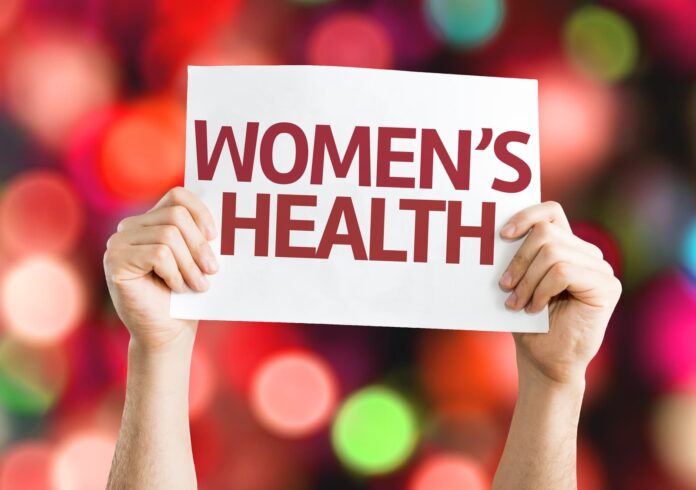“Women’s health is not just about reproductive health, it’s about overall well-being.” – Unknown
Women’s health differs from that of men’s health in many unique ways. Women’s health is an example of population health, where health is defined by the World Health Organization (WHO) as “a state of complete physical, mental and social well-being and not merely the absence of disease or infirmity”.
Women’s experience of health and disease differ from those of men, due to unique biological, social and behavioral conditions. Biological differences vary from phenotypes to cellular biology, and manifest unique risks for the development of ill health.
Being a man or a woman has a significant impact on health, as a result of both biological and gender-related differences. The health of women and girls is of particular concern because, in many societies, they are disadvantaged by discrimination rooted in sociocultural factors.
Although many of the issues around women’s health relate to their reproductive health, including maternal and child health, genital health and breast health, and endocrine (hormonal) health, including menstruation, birth control and menopause, a broader understanding of women’s health to include all aspects of the health of women has been urged, replacing “Women’s Health” with “The Health of Women”.
One famous slogan, “Healthy Women, Healthy World”, embodies the fact that as custodians of family health, women play a critical role in maintaining the health and overall well-being of her communities.
In this article you will learn, we are going to be exploring
Definition of woman health
Why is women health important
Women mental health
Women physical health
7 sign of poor women’s health
6 common health issues affecting women
7 benefits of good women health
Definition of Woman Health
Health is defined by the World Health Organization as “a state of complete physical, mental and social well-being and not merely the absence of disease or infirmity”.
Women’s health refers to the branch of medicine that focuses on the treatment and diagnosis of diseases and conditions that affect a woman’s physical and emotional well-being.
Women have higher levels of chronic disease and poorer mental health linked to sexism, violence and chronically poor incomes. Women experience gender discrimination in healthcare which can result in delayed access to care, misdiagnosis, and neglect.
Although women in industrialized countries have narrowed the gender gap in life expectancy and now live longer than men, in many areas of health they experience earlier and more severe disease with poorer outcomes.
The health of families and communities are no doubt tied to the health of women. The illness or death of a woman has serious and far-reaching consequences for the health of her children, family and the community too.
Today, women’s health is taking on a higher position in society as people have come to realize that while women have many of the same diseases as men, their symptoms and treatments may not always be identical.
Why is Women’s wellness Important?
Women’s wellness is an important concern because even today, women face discrimination in social culture. According to the World Health Organization, over 800 women die every day in pregnancy and childbirth. Due to the Covid-19 pandemic, women and girls encounter new health challenges and crises that disrupt their access to health and vital support services.
Women are more prone to ovarian cancer, breast cancer, heart diseases, depression, and anxiety, ranking the topmost in wellness and health issues for women. Women’s health issues mentioned above are certain severe conditions that can considerably affect their quality of health and well-being.
Diseases like ovarian and breast cancer are treatable at their early stages. Women should see a doctor if they encounter irregular bleedings, lumps in the breast, and severe abdominal pain. Studies suggest that women need annual check-ups to keep track.
Women’s Mental Health
Mental issues or disorders can affect both genders. Women are more prone to depression and anxiety compared to men. They might experience symptoms of mental disorders during the perinatal time (from getting pregnant to a year after giving birth), hormone change, and menopause.
Other mental disorders like bipolar and schizophrenia are similar among men and women. But still, women might experience these illnesses differently; specific symptoms may affect women more than men, and the disease’s period will act according to the gender.
Women Physical Health
There are relatively few physical disorders unique to women that are more prevalent or severe. They need special prevention care or interventions as a prudent plan. The earliest physical disorder in a woman is when precocious puberty, to which there is an effective treatment newly developed. Disorders like bulimia (life-threatening eating disorder) and anorexia (abnormally low body weight) gradually increase among young women.
Reproductive concerns are a significant focus of women’s wellness. The hundred-fold decline in maternal mortality related to pregnancy is one of this century’s important public health achievements. The leading cause of death among middle-aged women is cancer. Due to the increase in smoking, breast cancer is replaced by lung cancer among women. Avoiding smoking will be the most crucial part of improving health, irrespective of gender.
Here are 7 signs of poor women’s health that should not be ignored:
- Irregular Menstrual Cycles
- Changes in menstrual cycle length, frequency, or heaviness can indicate hormonal imbalances, polycystic ovary syndrome (PCOS), or other reproductive health issues.
- Persistent Fatigue and Decline in Energy
- Prolonged exhaustion, lack of motivation, or difficulty concentrating may signal:
- Anemia
- Thyroid disorders
- Depression
- Chronic fatigue syndrome
- Sleep apnea
Unexplained Weight Changes
Sudden or unexplained weight gain or loss can be a symptom of:
- Hormonal imbalances
- Thyroid disorders
- Polycystic ovary syndrome (PCOS)
- Eating disorders
- Diabetes
- Mood Swings and Irritability
Severe or persistent mood swings, irritability, or anxiety may indicate:
- Depression
- Anxiety disorders
- Bipolar disorder
- Hormonal imbalances
- Menopause symptoms
- Unusual Bleeding or Discharge
Abnormal vaginal bleeding, heavy bleeding, or unusual discharge can signal:
- Reproductive tract infections (RTIs)
- Endometriosis
- Fibroids
- Cervical cancer
- Menopause complications
- Digestive Issues
Persistent digestive problems, such as bloating, constipation, or diarrhea, may indicate:
- Irritable bowel syndrome (IBS)
- Inflammatory bowel disease (IBD)
- Hormonal imbalances
- Food intolerance or sensitivity
- Gut health issues
- Sleep Disturbances
Difficulty sleeping, insomnia, or excessive sleepiness can be a symptom of:
- Menopause symptoms
- Hormonal imbalances
- Depression
- Anxiety disorders
- Sleep disorders (e.g., sleep apnea)
If you’re experiencing any of these signs, consult a healthcare provider for proper evaluation and treatment.
Here are six common health issues affecting women, along with their signs, symptoms, and treatment options:
Heart Disease
Signs and Symptoms:
- Chest pain or discomfort
- Shortness of breath
- Pain or weakness in arms, neck, jaw, or back
- Fatigue
- Cold sweats
- Lightheadedness
Treatment:
- Lifestyle changes (healthy diet, exercise, quitting smoking)
- Medications (statins, beta blockers, ACE inhibitors)
- Surgery (angioplasty, bypass surgery)
- Breast Cancer
Signs and Symptoms:
- New lumps or thickening in breast or underarm area
- Change in breast size or shape
- Dimpling or puckering of breast skin
- Redness or scaliness of breast skin
- Nipple discharge or change in nipple position
Treatment:
- Surgery (lumpectomy, mastectomy)
- Radiation therapy
- Chemotherapy
- Hormone therapy
- Ovarian and Cervical Cancer
Signs and Symptoms:
- Pelvic pain or pressure
- Abnormal vaginal bleeding
- Difficulty eating or feeling full
- Urinary frequency or urgency
- Fatigue
Treatment:
- Surgery (hysterectomy, removal of ovaries)
- Chemotherapy
- Radiation therapy
- Autoimmune Diseases (e.g., Rheumatoid Arthritis, Lupus)
Signs and Symptoms:
- Joint pain and swelling
- Fatigue
- Fever
- Skin rashes
- Hair loss
Treatment:
- Medications (immunosuppressants, anti-inflammatory drugs)
- Lifestyle changes (exercise, stress management)
- Alternative therapies (acupuncture, massage)
- Osteoporosis
Signs and Symptoms:
- Back pain
- Loss of height
- Fractures
- Curved spine
Treatment:
- Medications (bisphosphonates, hormone therapy)
- Lifestyle changes (exercise, calcium and vitamin D supplements)
- Physical therapy
- Depression and Anxiety
- Signs and Symptoms
- Persistent sadness or hopelessness
- Loss of interest in activities
- Changes in appetite or sleep
- Fatigue
- Difficulty concentrating
Treatment:
- Medications (antidepressants, anti-anxiety drugs)
- Therapy (cognitive-behavioral therapy, psychotherapy)
- Lifestyle changes (exercise, stress management)
It’s essential for women to prioritize their health through regular check-ups, screenings, and healthy lifestyle choices.
Here are 7 benefits of good women’s health:
Improved Quality of Life
Good women’s health enables individuals to live life to the fullest, enjoying activities, relationships, and pursuits without limitations imposed by illness or discomfort. This enhances overall well-being, happiness, and life satisfaction.
Increased Productivity
Maintaining good health allows women to:
- Work efficiently and effectively
- Pursue education and career goals
- Manage family and social responsibilities
- Engage in hobbies and personal interests
- Better Family and Community Health
Women often serve as primary caregivers and influencers in their families. Good health enables them to:
- Care for loved ones more effectively
- Model healthy behaviors for children and others
- Contribute to community well-being and social activities
- Enhanced Self-Esteem and Confidence
Good health fosters a positive self-image, empowering women to:
- Feel confident in their bodies and abilities
- Develop resilience and coping skills
- Build strong relationships and social connections
- Reduced Risk of Chronic Diseases
Prioritizing women’s health helps prevent and manage chronic conditions, such as:
- Heart disease
- Diabetes
- Certain cancers
- Osteoporosis
- Mental health disorders
- Improved Mental Health and Well-being
Good women’s health encompasses mental and emotional well-being, leading to:
- Reduced stress and anxiety
- Improved mood and emotional regulation
- Enhanced cognitive function and focus
- Better sleep quality
- Increased Longevity and Healthy Aging
Investing in women’s health promotes healthy aging, enabling individuals to:
- Live longer, healthier lives
- Maintain physical function and mobility
- Reduce the risk of age-related diseases
- Enjoy fulfilling relationships and activities throughout life
Conclusion:
Women’s health is a vital aspect of overall well-being, encompassing physical, mental, and emotional health. Despite progress, women continue to face unique health challenges, disparities, and social determinants that impact their health outcomes. Prioritizing women’s health is crucial for individuals, families, communities, and society as a whole.
The benefits of good women’s health are numerous, including improved quality of life, increased productivity, better family and community health, enhanced self-esteem, reduced risk of chronic diseases, improved mental health, and increased longevity.




























